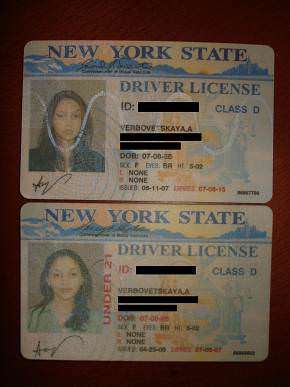Driver's License Suspensions, Ruining the Disadvantaged's Lives
Taking away people's ability to travel by car over fines and fees is unreasonably destructive.
The matter of how petty fines can lead to license suspensions (and court dates, then court costs and bigger fines, and other problems) and a world of crippling trouble for the poor and disadvantaged is a hobbyhorse I've been riding since January 2014, including writings in February 2014, May 2014, December 2014.

Today the New York Times explores the topic:
Going through the legal system, even for people charged with nonviolent misdemeanors, can be expensive, with fines, public defender fees, probation fees and other costs running into hundreds and sometimes thousands of dollars. Many people cannot pay
As a result, some states have begun suspending driver's licenses for unsatisfied debts stemming from any criminal case, from misdemeanors like marijuana possession to felonies in which court costs can reach into the tens of thousands of dollars. In Tennessee, almost 90,000 driver's licenses have been suspended since its law was enacted in 2011.
That so many of these suspensions have zero to do with any demonstrated inability to safely operate a motor vehicle is especially heinous.
The Times goes on to report vividly how it messes up a normal life:
Many drivers who have lost their licenses in Tennessee, too poor to pay what they owe and living in places with limited public transportation, have done what Mr. [Kenneth] Seay did. They have driven anyway….
Each time Mr. Seay was caught, he racked up new fines and fees on top of the old. As a repeat offender, he would often be jailed, causing him to lose his job, and placed on probation, which carries an additional fee of $40 a month. More recently, he has been jailed for violating probation because he fell behind on those payments. Except for odd jobs, he has been unemployed for about a year, partly because he finally swore off driving.
"If I could get my license back, that would be the most wonderful thing that happened to me in my life," Mr. Seay, 44, said.
Last February I wrote of this topic that:
As I wrote in my piece, it's a steady pattern of severe damage to the lives of the least well off in America that strangely gets little attention from most poverty activists and academics, perhaps because the solution is for the state to do less rather than do more.
Since then, with both NPR and the New York Times discovering this frequent injustice, the level of attention is happily rising. May action on the part of localities toward justice follow. The Times reports some hope already in the works I had been unaware of:
in recent years, a few states have reconsidered the policy amid concerns that it hurts low-income residents without achieving its intended goals. In 2013, Washington stopped suspending licenses for failure to pay nonmoving violations like expired registrations. Suspensions dropped by half, said Brad Benfield, a spokesman for the Washington State Department of Licensing, and each month, there have been 500 fewer arrests for driving while suspended, saving an estimated 4,500 hours of patrol officers' time.And this month, a California lawmaker introduced a bill that would make it easier for people to reinstate their licenses, after a report said that four million California licenses had been suspended for failure to pay or failure to appear in court.
"For many families, a driver's license suspension is the beginning of a descent into abject poverty for which there is no escape," the proposed law says.
Such suspensions certainly do, and should never be policy for anything other then firm proof of complete, recidivist unfitness to drive.


Show Comments (36)